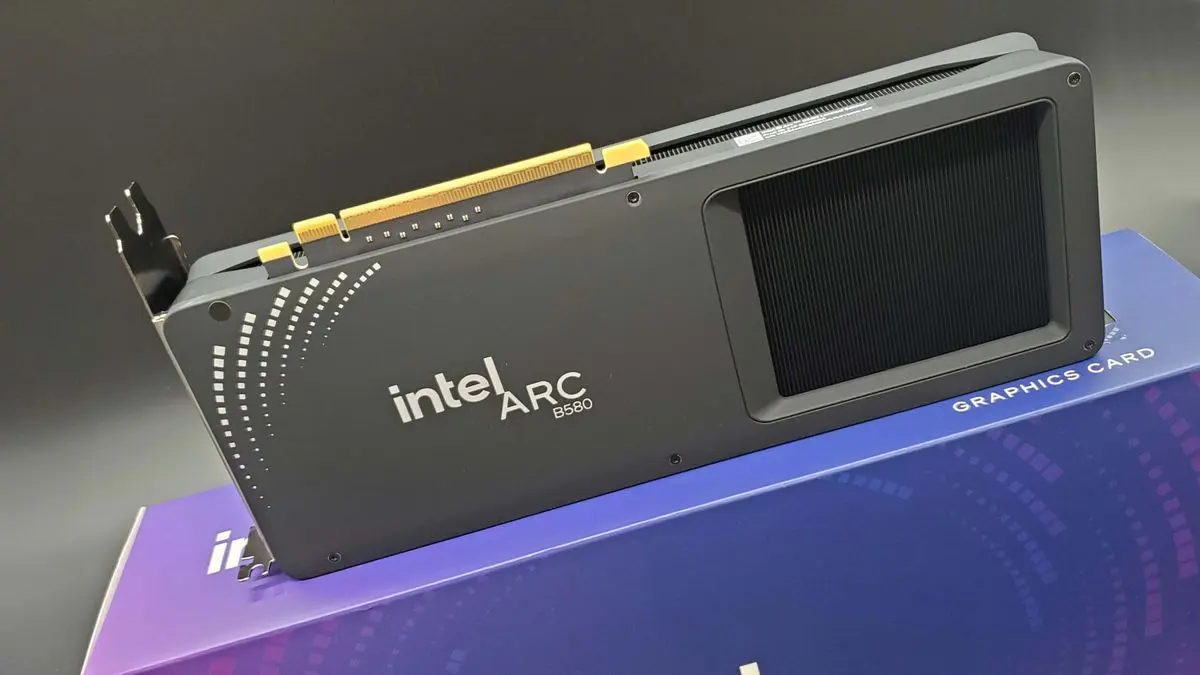Intel Confirms Falcon Shores AI GPUs On Track Despite Restructuring
2 Sources
2 Sources
[1]
Intel Says Falcon Shores AI GPUs On-Track: AI Roadmap Won't Be Affected By Restructuring Policy
Intel's AI roadmap won't be affected by the "harshly implemented" restructuring policy, as Team Blue confirms that Falcon Shores & Gaudi GPUs are on track. Intel is undergoing a rough business patch, probably one of the toughest financial periods the firm has witnessed in its history. Amid this, uncertainties surround how Team Blue will move forward in terms of planned consumer and clientele lineups, mainly since the firm is taking drastic measures to reduce spending and ultimately recover losses. However, Intel has come forward and clarified that their AI GPU lineups, existing and future ones, won't have any impact from the restructuring measures and that they are pretty optimistic about their accelerator portfolio. HPCWire reports that an Intel representative has verified that both Falcon Shores and Gaudi AI GPU lineups are right on schedule. The firm believes that global client, edge, and data center businesses are expected to benefit tremendously from Intel's AI roadmap, which is why Team Blue has decided to proceed with them without causing any delays. Here is what the spokesperson said: Our AI investments will complement and leverage our x86 franchise - with a focus on enterprise, cost-efficient inferencing. Our roadmap for Falcon Shores remains. Coupled with Xeon, our accelerator portfolio and investment in optimizations at a systems level are critical to our path forward and growth in Enterprise AI. - Intel's Spokesperson via HPCWire For those unaware, Intel's Falcon Shores AI GPUs are set to be a "pivotal" product for the firm when it comes to making a stride in the AI markets since Team Blue has decided to opt with TSMC completely this time, and by far, this move is working out for them, in the case of Lunar Lake SoCs. Intel plans on adopting an aggressive product portfolio with Falcon Shores rather than just "specializing" in a set of products, which means that it will diversify the lineup to cater to all types of client segments. In terms of specifications, it is an aid that Falcon Shores will debut with TSMC's 3nm process and CoWoS-R packaging, with a reported TDP of 1500W. NVIDIA's Blackwell products utilize both key elements, which is surely going to make Falcon Shores a competitive product in terms of the compute power existent in the markets. Apart from this, another interesting fact to note is that Intel is positioning its AI portfolio to align with the industry leaders, mainly NVIDIA. A prime example of this is how Intel's newly introduced Xeon 6 "Granite Rapids" SKUs are being tested alongside NVIDIA's AI accelerators, which will ultimately allow Team Blue to tap into the mainstream markets, potentially bringing in a revival of the firm's data center business.
[2]
Intel will be keeping its Falcon Shores GPU after all, though Battlemage still faces strong headwinds
As Intel has been looking to cut costs as part of its "next phase of transformation," its Falcon Shores datacenter GPU looked to be in danger of getting the axe. But a recent statement from the manufacturer brings about surprising news. An Intel spokesperson confirmed that Falcon Shores will survive and will still be released, with additional plans to integrate it with Gaudi AI processors. According to the spokesperson (and reported on by HPC Wire), "Our AI investments will complement and leverage our x86 franchise -- with a focus on enterprise, cost-efficient inferencing. Our roadmap for Falcon Shores remains." The statement coincides with an official blog post that not only reiterated the integration of Gaudi AI IP into Falcon Shores, but that the latter is still set for a 2025 release date. The post then continued to explain that the hybrid architecture would "offer an even more powerful platform for deep learning," providing an alternative to traditional GPU-heavy platforms. Merging x86 CPU cores with Xe-HPC GPU cores into an Xeon socket was something Intel has been planned for years, first introducing the concept back in 2022, and it now looks like it will come to fruition with Falcon Shores. Given that Intel's consumer GPU division is still under threat by the company's cost-cutting, I genuinely hope that the good news for Falcon Shores isn't the end of the story. Intel's few offerings on the consumer graphics side have easily been some of the best cheap graphics cards on the market, balancing solid performance with great pricing. And honestly Team Red and Team Green could use the competition in that field considering how recent generations have seen little to no true budget cards. Of course, this doesn't mean that consumer graphics cards like the Intel Arc Battlemage won't get canceled. But hopefully, they'll be safe alongside Falcon Shores since we need more competition in the consumer card space.
Share
Share
Copy Link
Intel reassures that its AI GPU roadmap, including Falcon Shores and Gaudi, remains unaffected by recent restructuring measures. The company emphasizes its commitment to AI investments and integration with x86 technology.

Intel Reaffirms Commitment to AI GPU Development
In a surprising turn of events, Intel has confirmed that its ambitious AI GPU roadmap, including the highly anticipated Falcon Shores and Gaudi lineups, will proceed as planned despite the company's ongoing restructuring efforts
1
. This announcement comes as a relief to many in the tech industry who were concerned about the potential impact of Intel's cost-cutting measures on its future AI initiatives.Falcon Shores: A Pivotal Product for Intel's AI Strategy
Intel's Falcon Shores AI GPUs are poised to be a game-changer for the company in the competitive AI market. The decision to partner with TSMC for manufacturing these GPUs on their 3nm process, coupled with CoWoS-R packaging, is expected to yield significant performance benefits
1
. With a reported TDP of 1500W, Falcon Shores is being positioned to compete directly with NVIDIA's Blackwell products, showcasing Intel's commitment to high-performance computing in the AI sector.Integration of Gaudi AI IP and x86 Architecture
Intel's strategy extends beyond just GPU development. The company plans to integrate Gaudi AI IP into Falcon Shores, creating a hybrid architecture that combines x86 CPU cores with Xe-HPC GPU cores
2
. This innovative approach aims to offer a more powerful platform for deep learning, potentially providing an alternative to traditional GPU-heavy platforms in the AI and data center markets.Aligning with Industry Leaders
Intel is strategically positioning its AI portfolio to align with industry leaders, particularly NVIDIA. The company is testing its new Xeon 6 "Granite Rapids" SKUs alongside NVIDIA's AI accelerators, a move that could help Intel tap into mainstream markets and potentially revitalize its data center business
1
.Related Stories
Implications for Consumer Graphics
While the focus of this announcement is on data center and AI products, questions remain about Intel's consumer graphics division. The company's Arc series has been well-received in the budget segment, offering competitive performance at attractive price points
2
. However, the fate of consumer products like the Intel Arc Battlemage remains uncertain amidst the ongoing restructuring.Looking Ahead
Intel's commitment to its AI roadmap, despite financial challenges, signals the company's recognition of AI's critical role in the future of computing. With Falcon Shores slated for a 2025 release, Intel is positioning itself to be a strong contender in the AI accelerator market, potentially shaking up the current dynamics dominated by NVIDIA and AMD
2
.References
Summarized by
Navi
[1]
Related Stories
Recent Highlights
1
ByteDance Faces Hollywood Backlash After Seedance 2.0 Creates Unauthorized Celebrity Deepfakes
Technology

2
Microsoft AI chief predicts artificial intelligence will automate most white-collar jobs in 18 months
Business and Economy

3
Google reports state-sponsored hackers exploit Gemini AI across all stages of cyberattacks
Technology








